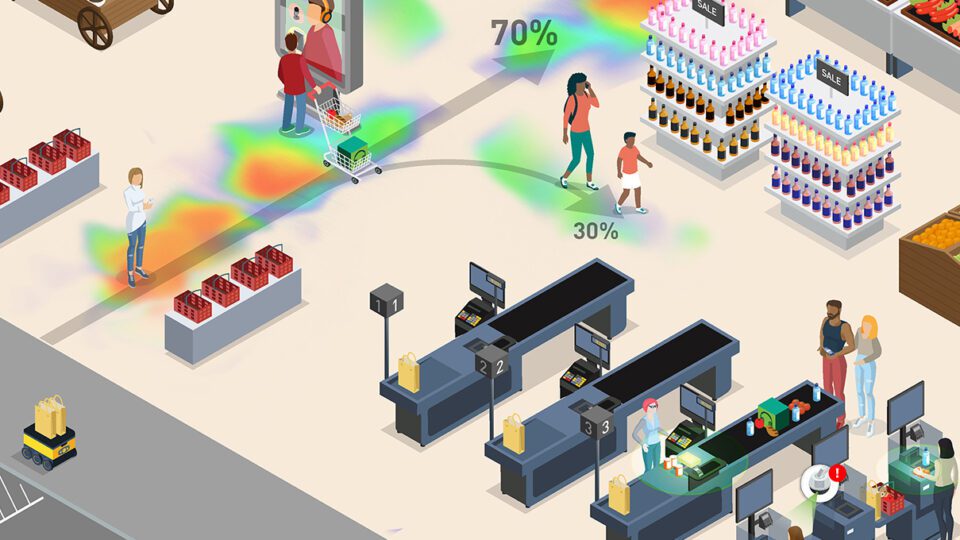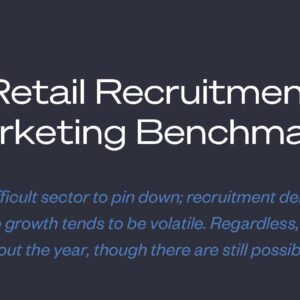Artificial intelligence dominated headlines and water cooler conversations in 2023, and 2024 is looking to be no different (if the conversations and showcases at CES and NRF’s Big Show are any indication). Within the larger global market, McKinsey estimates that the retail and CPG sectors have the most to gain from AI, with potential to harness the tech and drive huge improvements in operational efficiency as well as the customer and employee experience.
As AI hype moves toward action, new studies from chip manufacturer Nvidia and Google Cloud offer a look at the state of AI adoption in retail. Nvidia surveyed more than 400 retail professionals at all organizational levels and found that while AI adoption is still in its early stages, more than 60% of respondents are planning to boost their AI investments in the next 18 months.
Based on the findings of the studies, two AI truths become clear:
- Retailers are looking to AI to offset a plethora of current challenges and drive operational efficiency; and
- Executives see generative AI specifically as a transformational technology that will change the face of retail communications and experiences.
Retailers Look to AI for Efficiency
After years marked by disruptions in everything from the labor market to the supply chain, it’s no big surprise that the top priority for retailers when it comes to AI is using the technology to improve operational efficiencies, according to the Nvidia survey.
Advertisement
“To stay ahead in a highly dynamic market, retailers are actively considering how AI can help them meet evolving customer preferences, address labor shortages and drive sustainability efforts,” said Cynthia Countouris, Director of Product Marketing for Retail, CPG and QSR at Nvidia in a blog post outlining the survey results.
In fact, the Nvidia study found that AI already has been a game-changer for retailers, with 69% reporting an increase in annual revenue attributed to AI adoption and 72% of retailers that already use AI saying they experienced a decrease in operating costs.
Among the current top use cases for AI in retail are:
- Store analytics and insights;
- Personalized customer recommendations;
- Adaptive advertising, promotions and pricing;
- Stockout and inventory management; and
- Conversational AI.
But many of these tasks may just represent the low-hanging AI fruit. When looking to the future, executives surveyed by Nvidia mentioned a number of more advanced AI uses they are exploring, including:
- Ways to reduce shrink and enhance loss prevention efforts;
- Metaverse use cases that can further enhance consumer engagement and operational efficiency;
- Leveraging AI for brick-and-mortar stores to provide new levels of convenience and personalization. In fact, 30% of respondents believe that the biggest area of opportunity for AI is in stores to aid omnichannel and loss prevention efforts; and
- Transforming customer experiences specifically through the use of generative AI.
Among the areas of concern that executives noted in the Nvidia study were ensuring data privacy and protection when adopting genAI technologies, and lack of adequate technology and talent to truly take advantage of AI tools.
In fact, in order to support ongoing technology innovation, the Google Cloud survey found that more than half of retail decision makers anticipate an increase in the hiring of technical positions across several job functions, including data scientists (77%), machine learning engineers (69%), prompt engineers (57%) and AI-related product managers and developers (78%). Specifically, retail decision makers expect hiring for data scientists across retail to increase by 10% this year.
Generative AI has the Power to Transform Retail
As any retailer will tell you, despite the furor that erupted last year, AI is not actually new to retail. Many companies have long been using AI and machine-learning technologies to enhance their business practices. What changed last year was the arrival of enterprise-grade generative AI technology, and in this regard, executives see the potential for true transformation, particularly in the realm of customer experience.
Respondents to the Nvidia survey acknowledged that incorporating AI into business practices and solutions could revolutionize customer engagement, optimize marketing strategies and streamline operational processes, with 86% saying they want to use the tech specifically to enhance customer experiences. And Google’s survey of 274 C-suite executives and business technology leads found that 81% of retail decision makers feel an urgency to adopt generative AI technologies, with 72% saying they are ready to deploy generative AI in the coming year. Nearly all (95%) of respondents in the Google survey said that generative AI will have an impact on the customer experience.
“Generative AI has come so far in one year, shifting from a barely known concept to an urgently needed answer for numerous business challenges,” said Amy Eschliman, Managing Director for Retail Industry Solutions at Google Cloud in a statement. “2023 was a period of experimentation for retailers, and many invested dollars learning where generative AI could have the biggest impact. In 2024, we’ll see retail decision makers put this technology into production to improve shopping experiences, increase productivity and fuel growth.”
Those investments look to be coalescing around five specific practice areas, outlined in the Google Cloud survey and reiterated in Nvidia’s findings. These include:
- Customer service automation: 59% of respondents to the Google Cloud survey want to use generative AI to streamline customer service with less human intervention by providing conversation summaries, automating tasks and ultimately driving conversion. This could include inquiry resolutions, appointment scheduling and completing transactions;
- Marketing support and product description generation: 49% of respondents want to use generative AI to accelerate product categorization and generate customer-centric marketing copy;
- Creative assistance: 44% of respondents want to use generative AI to empower retail creative teams to curate bespoke images and creative content for campaigns and editorial placements and also enable one-to-one personalization;
- Conversational commerce: 40% of retail decision-makers want to use generative AI to address shopper inquiries with interactive responses beyond just product recommendations; and
- Store associate knowledge and support: 38% of respondents want to use generative AI to automatically develop internal knowledge articles from existing data sources, such as product documentation, customer support tickets and employee training materials.
With all that in mind, it seems clear that AI is set to have another big year in 2024. In fact, the main takeaway of all this research was summed up beautifully by Nvidia’s Countouris: “The retail industry is in the midst of a major technology transformation, fueled by the rise in AI.”









